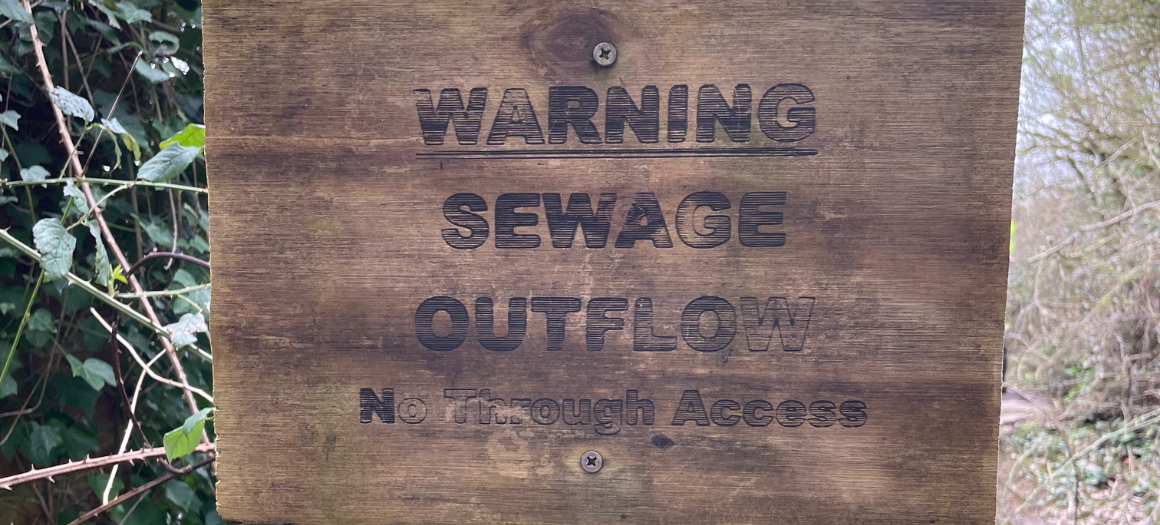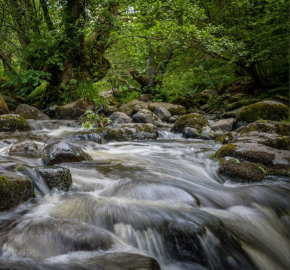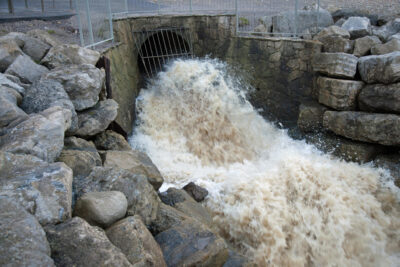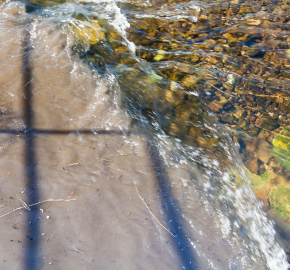WildFish gets High Court green light for planning challenge

WildFish has been given permission by the High Court to challenge a planning decision for 170 houses which could see an overwhelmed sewage works spewing sewage into the Great Ouse.
On 4 March 2025, Buckinghamshire Council signed off on conditions for a massive housing development in Maids Moreton, a village outside Buckingham.
But sewage from the site will be treated at Buckingham sewage treatment works which is presently struggling to keep to its permit limits. Sewage from the site is supposed to be treated properly, but when there is too much, there are risks of pollution as the works discharge into the river via a ditch.
The Great Ouse flows to the south-east of the site. One of the longest rivers in England, its catchment holds Ramsar sites, Special Protection Areas, Special Areas of Conservation and Sites of Special Scientific Interest. It is currently failing environmental standards with a WFD status of “poor”.
Just before the decision, Ofwat confirmed that the investment proposals for Buckingham STW had been refused because Ofwat had already approved use of customer money in a previous price review, but the works were still unable to cope with present demand – let alone the impact of further housing growth.
The developer applied to have a key condition amended to allow it to build the homes even after Anglian had said it did not have capacity, whilst admitting that it would not be able to refuse connection.
One of the arguments run by the council and the developer was that the expected sign-off of investment by the water company by the regulator, Ofwat, means that the capacity issue is now resolved. But it is clearly not the case.
WildFish’s case is in parallel with its “No capacity, no development” campaign to ensure that houses are only built where there is capacity at sewage works – you can read the campaign’s full report here.
Justin Neal, a solicitor at WildFish said:
“This is a case which illustrates the real problem faced in England where planning permissions and approvals are made without proper consideration of the impacts on the environment. That includes the effect of putting extra burdens on an overwhelmed sewage system which leads to poorly treated sewage and sewage spills into rivers. Building a huge estate without first making sure there is capacity is a bad idea. It is also a general problem across England as Ofwat have effectively washed their hands of their responsibilities leaving the local planning authorities (LPAs) to regulate through planning conditions – which are too weak and subject to amendment at a later date, under pressure from developers and with poor advice from water and sewage companies.”
He added:
“the government is likely to make the situation worse if the Planning and Infrastructure Bill becomes law. For instance, the government sees nutrient neutrality rules and the laws that support them as a threat to growth, including housing. It wants to sweep away whole swathes of regulation. But the real problem is not with the law but with the failure to make sure there is adequate room for sustainable development by, for instance, ensuring that there is sufficient capacity at all sewage works across England. But simply lowering standards and leaving decisions that affect our rivers to planning officers is not the best way to avoid pollution.”
WildFish is now calling on the government to “Bin the Bill”, as part of a campaign to raise awareness of the threat that the Planning and Infrastructure Bill poses to nature including wild fish habitats. In a long read published earlier this month, Justin Neal called the Bill a “a huge threat to nature and our wild fish.”




It’s outrageous that the Government continues to pollute our river systems by allowing developers to build where the sewage system is not able to cope with the additional waste. The law needs to change Now!
What is wrong with these gutless Governments? It’s about time they put the country 1st
The Water companies are aware of Local Plans which include the number of houses to be built in a LPA per year. I believe the Water Cos are responsible for providing the necessary infrastructure for water and waste water to cope.
In one example I am aware of the Nutrient Neutrality issue would be resolved by the water co installing an upgraded water treatment plant. To let the water authority ‘off’ would indeed be gutless.